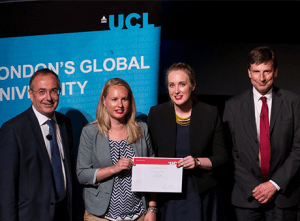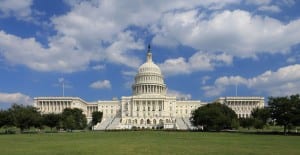What will happen when artificial intelligence and the internet meet the professions?
By ucyow3c, on 2 November 2015
![]() Written by Cathryn Evans (UCL Laws)
Written by Cathryn Evans (UCL Laws)
 On Thursday 22 October, UCL Honorary Professor, Richard Susskind OBE and his son Daniel Susskind, a lecturer in economics at Oxford, launched their new book, ‘The Future of the Professions’ which examines how technology is transforming the work of human experts.
On Thursday 22 October, UCL Honorary Professor, Richard Susskind OBE and his son Daniel Susskind, a lecturer in economics at Oxford, launched their new book, ‘The Future of the Professions’ which examines how technology is transforming the work of human experts.
The Susskinds believe that there are two possible futures for the professions: a reassuringly familiar one, with professionals utilising technology such as Skype or design software to work more efficiently, or a pessimistic future, where computers actively displace the work of people. They conclude that these two futures will run in parallel for some time, but that the second will dominate eventually and traditional professions will be dismantled.
“Why have the professions?” asked Daniel. In a print-based, industrial society, each profession curates and guards its own body of specialist knowledge, but this is no longer possible in a technology-based, Internet society where the traditional ‘gatekeeper’ role is dying out.
Citing examples from Harvard, where more people signed up in one year for its online courses than had actually attended the university in its nearly 300-year history, and Ebay, where 60 million disputes are resolved every year without the use of lawyers, Daniel explored whether, eventually, there will be any jobs left for the professions, referencing the recent Economist review of the Future of the Professions, which asked whether “Professor Dr Robot QC” would replace professionals before long.
 Close
Close




